Branko participated in the testing of the Oxford vaccine and he was not afraid at all, here is why
"The vaccine is safe, although it was made quickly," Branko Rihtman told Telegraf
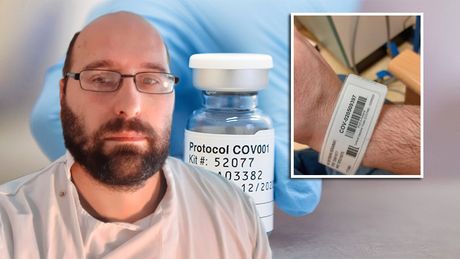
Branko Rihtman from Bosnia and Herzegovina (BiH) works as a microbiologist in Great Britain. He is one of the volunteers who applied to participate in the trial of the famous Oxford vaccine, which could very quickly get the approval of the regulatory body.
In a conversation with Telegraf, Branko reveals why he dared to take such a brave step, what participation in the trials looked like and how much his life has changed since he decided to help scientists in the search for a vaccine that will save the world.
"The main motivation was for this situation to end as soon as possible, and it will not end without a vaccine," Branko says for Telegraf. "Since I don't work directly on the vaccine, applying to participate in the trial was the only way to somehow help reach this goal."
He says he has never participated in similar trials before. He also reveals whether at the moment when he decided to apply, he was afraid that something might "go wrong."
"I was not afraid, because it is a vaccine like any other. We were are all vaccinated in ex-Yugoslavia as children, my children received all the necessary vaccines, they are vaccinated against the flu every winter, so there was no reason for fear," Branko is sincere.
Regular testing
When asked how his body reacted when he received the first dose of the vaccine and how much his life has changed since he joined this study, Rihtman says:
"After receiving the vaccine, I was kept in the hospital in Birmingham, one of the places where the trials are performed, for another 30 minutes, to make sure that I didn't develop any side effects, and then I went home. I do a PCR test every week at home and send samples by mail to one of the many testing centers in the UK. In addition, after one, three, six months and a year, I will go to the hospital for serological tests, to check the level of antibodies against Covid 19 in my body."
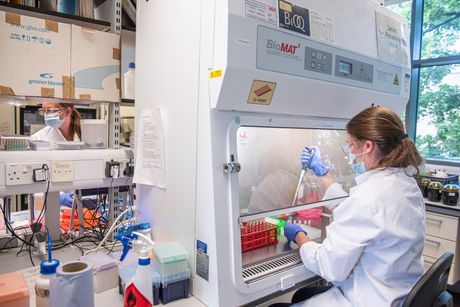
One of the questions we don't have the answer to yet is, if the vaccine causes the production of antibodies against the virus, for how long can our immune system fight the infection, that is, how long the immunity last. Therefore, Telegraf's interlocutor added that the presence of antibodies in the blood is being checked. During each visit to the hospital, he receives a sufficient number of PCR tests to last until his next visit.
Advantages of the Oxford vaccine
Like other participants in the Oxford vaccine study, Branko still doesn't know if he received the actual vaccine or a placebo:
"What turned out in this test is that receiving half the dose, and then the whole dose after a month is more efficient than receiving two whole doses. I received two doses, one in April and the other in September, but I still don't know if I received the real vaccine or a placebo, or if I received two whole doses, or one half, then one whole."
Speaking about the advantage of the Oxford vaccine over the other two whose manufacturers have sought urgent approval from regulatory bodies, Rihtman says:
"The biggest advantage of the Oxford vaccine over the others is its price, the possibility of mass production around the world and relatively undemanding conditions of transport and storage. While BioNTeck's and Pfizer's vaccines, as well as Moderna's, require storage and transport below -70 and -20 degrees, respectively, the Oxford vaccine can be stored in a regular refrigerator and last for six months. This makes it much more affordable than the others."
The vaccine is safe, although it was made quickly
Virologists keep repeating that it takes eight to 10 years of hard research work to develop a safe, secure and effective vaccine. Hence the suspicion by a part of the public that vaccines that have been made since the coronavirus pandemic was declared will not be effective enough. Branko does not agree with that.
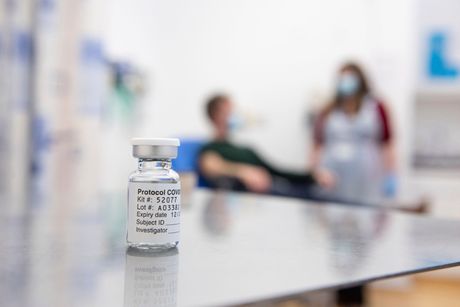
"The reasons why the development of a vaccine usually takes so long have nothing to do with the safety of the vaccine. In order to be able to say with statistically significant certainty that a vaccine is effective and safe, a sufficient number of people, both in the group that received the vaccine and in the group that received the placebo vaccine, must be exposed to the virus. For the vaccines we have developed so far, this process has taken a very long time.
Given that this is now a global pandemic, it only takes a few months for a sufficient number of people from the control group to become infected to be able to say whether the vaccine is effective in protecting the vaccinated people from the infection," our interlocutor explains.
He reminds that additional reasons for the incredible speed of development of this vaccine are the advancement of technology and scientific methods needed for the development of a vaccine, as well as the great readiness of regulatory organizations to bring the administrative part of vaccine approval to an absolute minimum so that we can return to normal life as soon as possible
"We must fight the epidemic of stupidity as well as this pandemic"
Anti-vaxxer lobbies are strong all over the world, and there are many who are persistently saying that "SARS-CoV-2 is a fake virus" despite the fact that almost 1.5 million people died from it, and that more than 61 million people tested positive for coronavirus. Healthcare systems all over the world are on the verge of breaking for who knows which time since the beginning of the pandemic...
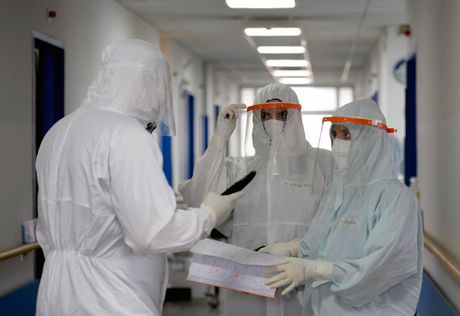
Asked if, as someone who deals with microbiology and knows medicine well, there is a suggestion on how to stop speculation on the topic of vaccines, Telegraf's interlocutor says:
"Anti-vaxers and conspiracy theorists are a plague that has taken off in recent years. We must fight this epidemic of stupidity and ignorance with the same zeal and commitment as the pandemic itself. First, children and young people need to be educated about scientific methods and critical thinking.
People should learn to look critically at different sources of information and be able to judge which ones to trust and which ones not to trust. Someone's status on Facebook and a scientific paper that is the result of serious work and which has been verified by other scientists cannot carry the same weight.
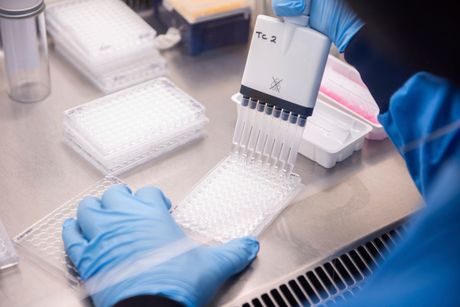
In addition, Branko says, society must treat people who spread lies and conspiracy theories on networks as potential killers.
"Just as it is a criminal offense to enter a full cinema hall and shout 'fire', causing people to die, so it should be punishable to spread lies that can cause people's death.
At the very least, what we need to do is start expecting the media not to give equal space to people who have no factual support behind their claims, but let people who are guided by facts and critical thinking inform us," Rihtman believes.
Russian and Chinese vaccines have not undergone rigorous testing process
Most likely this month, after registration, at least one vaccine against Covid 19 will be in use. The Russians have offered AstraZeneca that their Sputnik V be administered as revaccination until research into the Oxford vaccine is complete. Branko says that he would not dare to receive Sputnik V as revaccination and explains why:
"The results of the Sputnik vaccine test, as well as the Chinese vaccine, have not been published in international scientific journals. The publication of test protocols and results is what makes the results of scientific tests reliable.
When you publish the results of your work, i.e. when you send them to a scientific journal for publication, your work is checked by independent and anonymous experts from the field in which you want to publish the work. These experts do everything in their power to bring down your work - they find a mistake in the method, they find a mistake in data analysis, a mistake in the conclusions you make. It is a very brutal and cruel process where sometimes months or even years of hard work fall through based on the negative opinion of an expert."
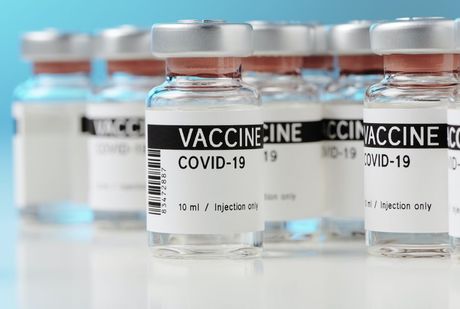
That, Branko points out, means that those works that are published pass control and that we can be quite confident that they are behind what they claim.
"Even when they are published, these papers can be scrutinized by the entire scientific community, which can check the validity of your work and often find errors that then affect someone's work to be withdrawn. Considering that neither the Russian nor the Chinese tests of vaccines went through that rigorous process, at least not to the extent that the tests of other leading vaccines have, I would not feel safe to receive such a vaccine," our interlocutor explains.
Life in quarantine
Branko found himself in Great Britain during the coronavirus pandemic. Recalling what the first days of quarantine looked like, he says the first days were "a little complicated":
"Mostly because it was necessary to help children adapt to the new conditions of online classes. At the beginning of the quarantine, there were also a few problems with supplies, because people panicked and bought things they didn't need (toilet paper, for example). But soon the situation calmed down and we got into a routine. The new lockdown is quite OK, essentially, it is not a rigorous lockdown because only restaurants and stores are closed, while supermarkets and schools are open, as are most jobs.

Prime Minister Boris Johnson said that the upcoming Christmas and New Year would not be peaceful if strict measures had not been introduced again. We asked Branko where the British went wrong when it comes to the epidemic reigniting within the pandemic, and where we from from ex-Yugoslavia went wrong.
"In my layman's opinion, the mistakes in Great Britain are quite similar to the mistakes in the countries of our region - doubts about the application of measures, inconsistency and the desire to please everyone. We see in the examples of Australia, New Zealand, South Korea, that countries that have been patient in the short term and introduced rigorous measures in which they persisted, now lead more or less normal lives and their economies can return to some normal track. Countries like ours and Great Britain also wanted to save healthcare workers and not to cause too much economic damage, so they were left empty handed in both areas.
Video: What are vaccines and how they work?
(Telegraf.rs)
Telegraf.rs zadržava sva prava nad sadržajem. Za preuzimanje sadržaja pogledajte uputstva na stranici Uslovi korišćenja.




